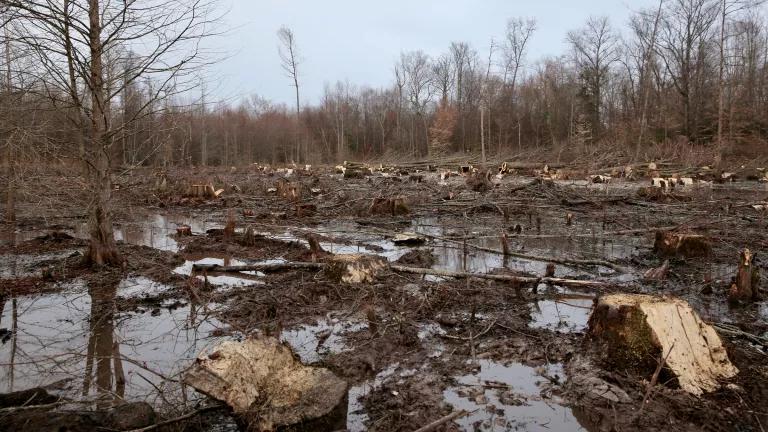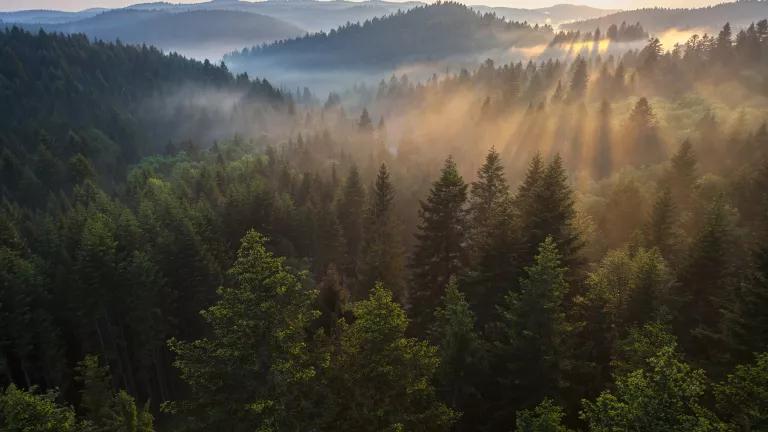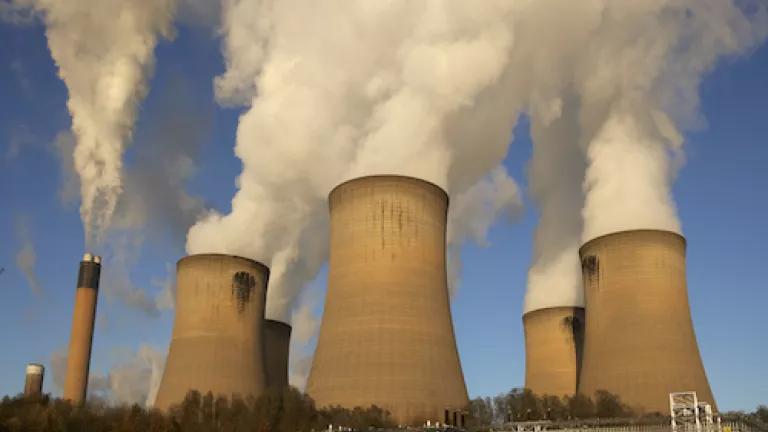
Karl Adami
Burning forest biomass in power stations has failed. It has failed to deliver emissions cuts. It has failed to deliver value for money. It has failed to protect nature. It has failed to protect human health.
And it has resulted in a system of Government funding for companies that would collapse financially without that support, because they otherwise make a loss year after year.
So why–given the complete failure of burning wood pellets in power stations–is the UK Government planning to double down on this failed technology?
This week the UK Government published a consultation proposing to spend billions more on dirty bioenergy. From 2030 bioenergy power plants claim they will be able to use carbon capture technology, and take advantage of new “carbon capture” subsidies. But their current subsidies end in 2027, three years earlier. Because burning biomass is so expensive, these companies probably wouldn’t survive from 2027-2030 without subsidies.
The UK Government is offering to step in and bankroll them for another three years–providing a funding bridge. Who pays for this? The UK public through their energy bills.
Spending billions of pounds on three more years of bioenergy subsidies would be a bridge to nowhere–the promised carbon capture technology will never materialise. MPs from the right and left of British politics are already objecting, as are thinktanks that have the Government’s ear.
Billions have already been wasted on bioenergy
The UK has spent billions of pounds on subsidies given to bioenergy companies. But burning biomass has failed in its main goal–reducing emissions. Burning wood means forests absorb and store less carbon, making climate change worse for decades. Bioenergy in the UK only looks carbon neutral on paper.
Bioenergy companies have shown they can’t be trusted with the public’s money. Instead of returning this money to the public when they didn’t need it, they sold their fuel for a fast buck and cheated the UK public out of £600 million.
Nor can they be trusted with people’s health. Time and time and time again these companies have violated air pollution laws where wood pellets are made in the US Southeast, and been fined for it. This disproportionately impacts poorer communities of color.
And despite their greenwashing, these companies are wrecking nature–the wood pellets they burn come from forests that should be protected and rich in nature. From the dwindling Boreal of northern Canada, to the Global Biodiversity Hotspot of the US Southeast, to legally protected forests in Estonia, the UK’s reliance on coal has been swapped for burning the world’s forests.
Finally, the wood pellets that are burned have risen a lot in price. As global demand for wood grows, it’s likely they’ll rise in price even more. This will make biomass more and more expensive. Britain will always be a price-taker for wood pellets, because it buys these wood pellets from an international market where the price is set globally (like gas). That’s going to undermine Britain’s energy security right when the country could be enhancing energy security, and powering itself several times over, through home-grown wind, solar, and battery storage.
Bioenergy with carbon capture will never work
This week the Government gave the green light, on paper, for Drax power station to–one day–install carbon capture technology on two of its units. This planning permission doesn’t mean very much considering that bioenergy with carbon capture and storage is a technology that doesn’t exist at scale yet. Around 1300 energy projects in the UK have this planning approval, but only 150 are being built. This would be one of the trickiest and costliest of the lot. The probability is that planning permission will never turn into a real project. But there are good reasons not to pursue BECCS as well.
The estimated cost of this project keeps rising. Ember published new figures showing the price tag for the subsidies it would need over 25 years has risen from £32 billion to £43 billion. And massive infrastructure projects have a nasty habit of running late and over budget.
If it was ever built, this would be one of the most expensive energy projects in the UK. With the current UK Government’s recent, late-in-the-day cancellation of a high-speed rail project due to its spiralling, multi-billion pound price tag, would any future Government want to support, then be forced to u-turn, on this potential white elephant project?
Because of the impacts on forests and their ability to absorb carbon dioxide, even adding carbon capture technology wouldn’t make bioenergy “carbon negative”. It only looks like it achieves negative emissions if you fudge the numbers and ignore the huge damage done to forests and their carbon absorption. The UK doesn’t even need BECCS’s fake emissions cuts to get to net zero - there are cheaper, cleaner ways to get there that genuinely cut emissions, help people’s health and help nature.
Throwing more fuel on the fire of biomass is bad for people, nature, and climate and extending biomass subsidies would be little more than a bridge to nowhere. Instead, the UK should build a bridge to a clean, secure future of wind, solar, and healthy forests.




